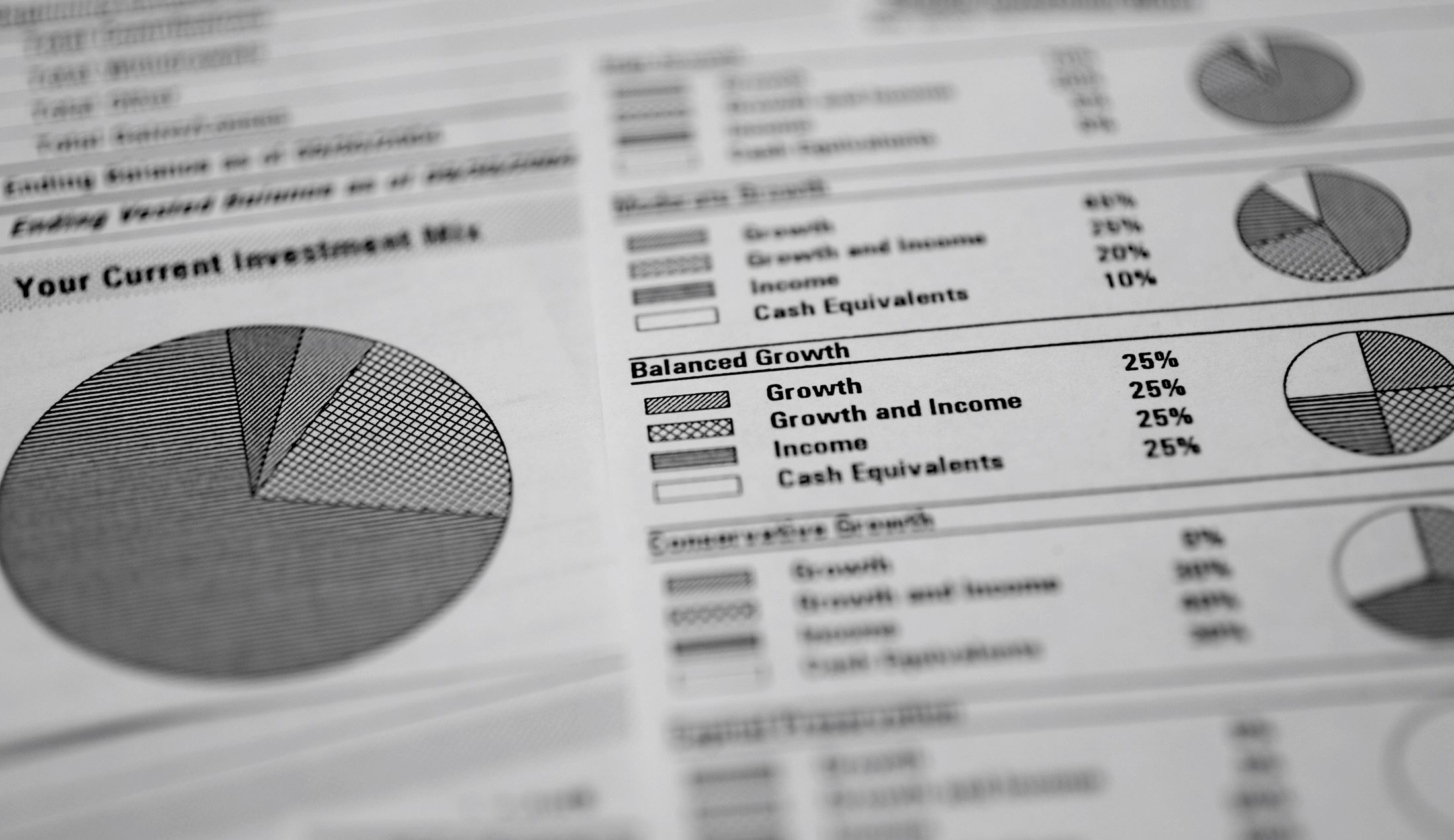Home>Finance>What Percentage Of My Bonus Should I Put In 401K


Finance
What Percentage Of My Bonus Should I Put In 401K
Published: October 17, 2023
Learn how much of your bonus you should contribute to your 401K with this helpful finance guide. Maximize your savings and plan for your future.
(Many of the links in this article redirect to a specific reviewed product. Your purchase of these products through affiliate links helps to generate commission for LiveWell, at no extra cost. Learn more)
Table of Contents
- Introduction
- Understanding Your Bonus
- The Benefits of Contributing to a 401(k)
- Factors to Consider When Deciding Your Contribution Percentage
- Importance of Saving for Retirement
- How Much Should You Contribute From Your Bonus?
- Factors to Consider Before Deciding
- Maximizing Your Contributions
- Potential Tax Implications
- Final Thoughts
Introduction
When it comes to managing your finances, planning for retirement should be a top priority. One of the most popular retirement savings options is a 401(k) plan. These employer-sponsored retirement plans allow you to save and invest a portion of your salary for the future. However, what about your annual bonus? Should you also contribute a portion of it to your 401(k)? In this article, we will explore the benefits of contributing to a 401(k), factors to consider when deciding your contribution percentage, and how much of your bonus you should put into your retirement account.
Understanding Your Bonus
Your bonus is an additional payment that you receive from your employer, often as a reward for your hard work or company performance. It is typically a lump-sum amount that is separate from your regular salary. Bonuses can vary in size, depending on your role, the company’s financial performance, and your individual performance. It’s essential to understand the nature of your bonus and the impact it can have on your financial goals.
The Benefits of Contributing to a 401(k)
A 401(k) offers several advantages when it comes to saving for retirement. One of the most significant benefits is the potential for tax advantages. Contributions made to a traditional 401(k) are made with pre-tax dollars, meaning you can reduce your taxable income for the year. Additionally, the money you contribute grows on a tax-deferred basis until you withdraw it in retirement, allowing it to potentially grow more than if it were subject to annual taxation.
Furthermore, many employers offer a matching contribution program, where they match a percentage of the employee’s contributions, typically up to a certain amount. This is essentially free money that can significantly boost your retirement savings. By not contributing to your 401(k), you may be missing out on valuable employer contributions.
Factors to Consider When Deciding Your Contribution Percentage
Deciding how much of your bonus to put into your 401(k) requires careful consideration of your financial situation and future goals. Here are some factors to keep in mind:
- Your current age and expected retirement age
- Your current savings in your 401(k) or other retirement accounts
- Your current income and expected future income
- Your monthly expenses
- Financial obligations, such as student loans or mortgage payments
All of these factors will play a role in determining the ideal contribution percentage for your bonus.
Understanding Your Bonus
Your bonus is an additional payment that you receive from your employer, often as a reward for your hard work or company performance. It is typically a lump-sum amount that is separate from your regular salary. Bonuses can vary in size, depending on your role, the company’s financial performance, and your individual performance. It’s essential to understand the nature of your bonus and the impact it can have on your financial goals.
Before deciding how much of your bonus to contribute to your 401(k), you’ll want to take the time to understand your bonus structure. Some bonuses may be discretionary, meaning they are not guaranteed and are based on factors such as company profitability or individual performance. Other bonuses, such as annual performance bonuses, may be outlined in your employment contract or based on specific metrics that are set in advance.
It’s also important to consider the timing of when you receive your bonus. Some companies distribute bonuses at the end of the year, while others may provide them on a different schedule. Understanding when you will receive your bonus can help you plan how to allocate it towards your financial goals.
Another factor to consider is whether your bonus is subject to taxes. In many cases, bonuses are taxed at a higher rate than regular income. This means that a significant portion of your bonus may go towards taxes, reducing the actual amount you receive. It’s crucial to factor in the tax implications when determining how much of your bonus to contribute to your 401(k).
Additionally, it’s important to evaluate your overall financial situation before deciding how much of your bonus to allocate to your retirement savings. If you have outstanding debts or other financial obligations, it may be wise to prioritize paying these off before increasing your 401(k) contributions. However, if you already have a strong financial foundation and minimal debt, allocating a larger portion of your bonus towards retirement savings may be a smart decision.
Remember, your bonus is an opportunity to boost your overall financial picture. By understanding the nature and timing of your bonus, considering the tax implications, and weighing your other financial obligations, you can make an informed decision about how much of it to contribute to your 401(k) account. And by doing so, you’ll take significant steps towards securing your financial future.
The Benefits of Contributing to a 401(k)
A 401(k) offers several advantages when it comes to saving for retirement. One of the most significant benefits is the potential for tax advantages. Contributions made to a traditional 401(k) are made with pre-tax dollars, meaning you can reduce your taxable income for the year. This can result in a lower tax bill and more money in your pocket.
Furthermore, the money you contribute to your 401(k) grows on a tax-deferred basis. This means that you won’t pay taxes on your contributions or the investment gains until you withdraw the money in retirement. By allowing your money to grow tax-free over the years, you may see considerable growth in your retirement savings.
Many employers offer a matching contribution program for their employees’ 401(k) plans. This means that for every dollar you contribute, your employer will contribute a certain percentage, typically up to a specific limit. Employer matches are essentially free money that can significantly boost your retirement savings. If your employer offers a matching program, be sure to contribute at least enough to maximize the match – otherwise, you’re leaving money on the table.
In addition to the tax advantages and employer matches, contributing to a 401(k) also helps promote disciplined saving. The contributions are deducted directly from your paycheck, making it easier to save consistently. This automatic process helps ensure that you are consistently adding to your retirement savings without much effort.
Another advantage of a 401(k) is that it offers a wide range of investment options. Typically, these plans provide a variety of investment funds, including stocks, bonds, and mutual funds. This allows you to choose an investment strategy that aligns with your risk tolerance and financial goals.
Lastly, contributing to a 401(k) can provide you with peace of mind and a sense of financial security. Knowing that you are proactively saving for your retirement can help alleviate concerns about your future financial well-being. It is a long-term investment in your future self, allowing you to retire comfortably and enjoy the fruits of your labor.
In summary, there are numerous benefits to contributing to a 401(k). From tax advantages and employer matches to disciplined saving and investment options, a 401(k) can play a crucial role in helping you build a solid financial foundation for retirement. By taking advantage of these benefits, you can maximize your retirement savings potential and work towards achieving your long-term financial goals.
Factors to Consider When Deciding Your Contribution Percentage
Deciding how much of your bonus to put into your 401(k) requires careful consideration of your financial situation and future goals. Here are some factors to keep in mind:
- Your current age and expected retirement age: The earlier you start contributing to your 401(k), the more time your money has to grow. Consider your retirement timeline to determine how much you need to save and adjust your contribution percentage accordingly.
- Your current savings in your 401(k) or other retirement accounts: Take into account your existing retirement savings and the growth rate of those investments. This can help you gauge how much additional savings you need and inform your contribution percentage.
- Your current income and expected future income: Your income level plays a role in determining how much you can comfortably contribute to your 401(k). Consider any potential salary increases or career advancements, as these may impact your ability to save more in the future.
- Your monthly expenses: Analyze your monthly expenses and financial commitments to determine how much you can realistically contribute to your 401(k) while still maintaining a comfortable lifestyle. It’s important to strike a balance between saving for the future and meeting your current needs.
- Financial obligations, such as student loans or mortgage payments: If you have significant financial obligations, such as high-interest student loans or mortgage payments, it may be wise to focus on paying these off before increasing your 401(k) contributions. Evaluate the interest rates and terms of your debts to determine the best financial strategy.
By considering these factors, you can determine an appropriate contribution percentage that aligns with your financial goals and current circumstances. Keep in mind that your contribution percentage is not set in stone and can be adjusted as your financial situation changes.
It’s also important to note that while contributing a portion of your bonus to your 401(k) is beneficial, it’s not the only option for utilizing your bonus. Depending on your financial priorities, you may choose to allocate a portion for debt repayment, emergency savings, or other investment opportunities. It’s all about finding the right balance and making decisions that align with your long-term financial goals.
Remember, the key is to save consistently and for the long term. As your career progresses and your financial situation evolves, regularly reassess your contribution percentage and make adjustments to ensure you are on track to achieve your retirement goals.
Importance of Saving for Retirement
Saving for retirement is one of the most critical financial goals you should prioritize throughout your working years. Here are some reasons why saving for retirement is important:
- Financial Security: Saving for retirement ensures that you have a reliable and steady income stream during your golden years. Without sufficient savings, you may have to rely solely on Social Security benefits, which may not be enough to cover your living expenses.
- Retirement Lifestyle: Saving for retirement allows you to maintain the lifestyle you desire after you stop working. Whether you want to travel, pursue hobbies, or simply enjoy a comfortable and stress-free retirement, having enough savings is essential to fund these activities.
- Inflation and Rising Costs: The cost of living tends to increase over time due to inflation. By saving for retirement, you can mitigate the impact of rising costs and ensure that your purchasing power remains intact throughout your retirement.
- Uncertainty of Social Security: While Social Security provides a safety net, it’s important to note that it may not be sufficient to cover all of your retirement expenses. Depending solely on Social Security benefits may limit your financial freedom and independence.
- Healthcare Expenses: As you age, healthcare expenses tend to increase. By saving for retirement, you can have a financial cushion to cover medical costs, long-term care expenses, and other healthcare needs that may arise.
- Opportunity for Financial Growth: Saving for retirement provides you with an opportunity for long-term financial growth. Investing your savings wisely in retirement accounts, such as a 401(k) or IRA, allows your money to grow over time, potentially providing you with greater financial resources during retirement.
It’s important to start saving early and consistently for retirement. The power of compounding allows your savings to grow exponentially over time. By starting early, even small contributions can have a significant impact on your retirement nest egg.
Additionally, saving for retirement allows you to take advantage of various tax benefits. Contributions made to retirement accounts like a 401(k) or IRA are often made with pre-tax dollars, reducing your taxable income. This can result in lower tax liability and potentially higher overall savings.
Remember, every dollar you save today is an investment in your future. By prioritizing retirement savings, you can build a secure foundation for your retirement years, ensuring financial stability and peace of mind.
How Much Should You Contribute From Your Bonus?
Determining how much of your bonus to contribute to your 401(k) is a personal decision that depends on several factors. While there is no one-size-fits-all answer, here are some considerations to help guide your decision:
- Financial Goals: Consider your overall financial goals and priorities. If retirement savings is a top priority for you, allocating a significant portion of your bonus towards your 401(k) can accelerate your savings progress.
- Current Retirement Savings: Evaluate your current retirement savings. If you have a substantial balance in your 401(k) or other retirement accounts, you may not need to contribute as much from your bonus. On the other hand, if you have limited savings, contributing a larger percentage can help you catch up.
- Matching Contributions: Take advantage of any employer matching contributions. If your employer offers a match, contribute at least enough to maximize the match. This is essentially free money that can significantly boost your retirement savings.
- Financial Obligations: Consider your financial obligations, such as outstanding debts or upcoming expenses. If you have high-interest debt, it may be more beneficial to use your bonus to pay down those obligations before increasing your contributions to your 401(k).
- Other Financial Goals: Consider your other financial goals, such as saving for an emergency fund, a down payment on a home, or education expenses. Allocate a portion of your bonus towards these goals before contributing to your retirement savings.
- Tax Considerations: Keep in mind the tax implications of your bonus and 401(k) contributions. If your bonus is subject to higher tax rates, contributing a larger percentage to your 401(k) can help reduce your taxable income for the year.
It’s generally recommended to aim for a total savings rate of at least 10% to 15% of your annual income, including both regular contributions and bonuses, towards retirement savings. However, this percentage can vary depending on your individual circumstances and financial goals.
As you determine the appropriate contribution percentage, it’s important to strike a balance between saving for the future and meeting your current needs and obligations. It may be helpful to consult with a financial advisor who can provide personalized guidance based on your unique situation.
Remember that your contribution percentage is not set in stone. You can always adjust it in the future as your financial circumstances change. The key is to save consistently and take advantage of any available opportunities to boost your retirement savings.
Factors to Consider Before Deciding
Before making a decision on how much of your bonus to contribute to your 401(k), it’s essential to consider the following factors:
- Short-Term Financial Needs: Assess your immediate financial needs and obligations. Are there any pressing expenses or debts that need to be addressed? It may be wise to allocate a portion of your bonus towards these short-term needs before increasing your 401(k) contribution.
- Emergency Fund: Evaluate the state of your emergency fund. It’s crucial to have a sufficient cash reserve to handle unexpected expenses. If your emergency fund is not fully funded, it may be wise to allocate a portion of your bonus towards building or replenishing it.
- Debt Obligations: Consider your outstanding debts, such as credit card balances, student loans, or a mortgage. If you have high-interest debt, it may be more financially beneficial to use a portion of your bonus to pay down those debts before increasing your 401(k) contributions.
- Other Financial Goals: Evaluate your other financial goals, such as saving for a down payment on a home, funding your child’s education, or starting a business. Allocating a portion of your bonus towards these goals can help you make progress while still prioritizing your retirement savings.
- Long-Term Retirement Goals: Consider your long-term retirement goals. How much money do you envision needing in retirement to maintain your desired lifestyle? Assess your current retirement savings and determine if additional contributions from your bonus are necessary to meet your goals.
- Tax Implications: Understand the tax implications of your bonus and 401(k) contributions. Depending on your income level and tax bracket, contributing a larger percentage of your bonus to your 401(k) can help lower your taxable income and potentially reduce your overall tax liability.
- Employer Matching: Take advantage of any employer matching contributions. If your employer offers a match, it’s generally recommended to contribute at least enough to maximize the match. This is essentially free money that can significantly boost your retirement savings.
By carefully considering these factors, you can make a well-informed decision on how much of your bonus to allocate towards your 401(k) and other financial priorities. It’s crucial to strike a balance between meeting your short-term needs and simultaneously working towards your long-term financial goals.
Remember, it’s always beneficial to consult with a financial advisor who can provide personalized advice based on your specific circumstances. They can help you devise a comprehensive financial plan that takes into account your goals, risk tolerance, and overall financial health.
Ultimately, the goal is to make choices that align with your individual circumstances and prioritize your long-term financial well-being, including building a solid retirement nest egg.
Maximizing Your Contributions
If you want to make the most of your 401(k) contributions, there are several strategies you can consider:
- Contribute up to the Maximum: Review your 401(k) plan’s contribution limits and aim to contribute up to the annual maximum. For 2022, the maximum contribution limit is $20,500 for individuals under 50 years old, and $27,000 for individuals aged 50 and older. Contributing the maximum amount allows you to maximize the tax advantages and potential employer matches.
- Take Advantage of Catch-up Contributions: If you are 50 or older, you can take advantage of catch-up contributions, allowing you to contribute additional funds to your 401(k) above the regular contribution limit. For 2022, the catch-up contribution limit is an additional $6,500.
- Front-load Your Contributions: Consider front-loading your contributions at the beginning of the year. By contributing a larger percentage of your bonus early on, you give your money more time to grow tax-deferred. Be mindful of any employer matching policies, as you may miss out on matching contributions if you front-load your contributions too quickly.
- Automate Contribution Increases: Set up automatic contribution increases as you receive salary raises or bonuses. This ensures that your contributions keep up with your income growth, helping you build your retirement savings faster without requiring additional effort on your part.
- Reassess Your Budget: Review your budget and expenses regularly to identify areas where you can cut back. By reducing discretionary spending or finding ways to save on monthly expenses, you may free up more funds to put towards your 401(k) contributions.
- Utilize Roth Options, if Available: If your employer offers a Roth 401(k) option, consider allocating a percentage of your contributions to this account. Roth contributions are made with after-tax dollars, meaning withdrawals in retirement (including earnings) are tax-free, providing potential tax diversification in retirement.
Remember, maximizing your contributions requires careful planning and depending on your financial situation. It’s important to prioritize and balance your other financial obligations, such as debt repayment and emergency savings, while also striving to maximize your retirement contributions.
It is also recommended to consult with a financial advisor or tax professional who can provide personalized advice based on your specific circumstances. They can help you create an optimized savings and investment strategy that aligns with your goals and helps you make the most of your 401(k) contributions.
By implementing these strategies, you can take significant steps towards maximizing your contributions and building a substantial retirement nest egg.
Potential Tax Implications
When it comes to your 401(k) contributions, it’s important to be aware of the potential tax implications. Understanding these implications can help you make informed decisions about your contributions and retirement savings strategy.
Pre-Tax Contributions: Traditional 401(k) contributions are made with pre-tax dollars. This means that the money you contribute is deducted from your taxable income for the year in which the contribution is made. As a result, your taxable income is reduced, potentially lowering your overall tax liability. However, keep in mind that you will owe taxes on your 401(k) withdrawals in retirement, as they will be considered taxable income at that time.
Tax-Deferred Growth: One of the significant benefits of contributing to a 401(k) is the potential for tax-deferred growth. The money you contribute and any investment gains within your 401(k) account grow without being subject to annual taxes. This allows your money to compound over time and potentially accumulate more earnings compared to investments that are subject to annual taxation.
Roth 401(k) Contributions: Some employers offer a Roth 401(k) option. With a Roth 401(k), contributions are made with after-tax dollars, meaning your contributions are already taxed before they are deposited into your account. The advantage of Roth contributions is that qualified withdrawals, including earnings, are tax-free in retirement. If you anticipate being in a higher tax bracket in retirement or prefer to have tax-free income in retirement, Roth 401(k) contributions may be a suitable option.
Withdrawal Taxation: When you reach retirement age and start making withdrawals from your 401(k), those distributions are subject to ordinary income tax. The amount you withdraw each year will be added to your taxable income for that year. It’s important to plan for these potential taxes and consider factors such as your other sources of income, changes in tax laws, and your desired retirement lifestyle.
Required Minimum Distributions (RMDs): Keep in mind that once you reach the age of 72 (or in some cases 70 ½ if you turned 70 ½ before 2020), you will be required to take a minimum distribution from your 401(k) each year. These RMDs are subject to income tax and failure to meet the distribution requirement may result in penalties. Understanding the rules around RMDs is crucial to avoid any unexpected tax consequences.
Consult a Tax Professional: Taxes can be complex, and everyone’s tax situation is unique. It’s recommended to consult with a tax professional or financial advisor who can provide personalized advice based on your specific circumstances. They can help you navigate the tax implications of your 401(k) contributions and retirement savings, ensuring you make informed decisions that align with your financial goals.
By understanding the potential tax implications, you can effectively plan your contributions, withdrawals, and overall retirement strategy, optimizing your tax situation and maximizing your retirement savings.
Final Thoughts
Deciding how much of your bonus to contribute to your 401(k) is a personal decision that should align with your financial goals and circumstances. By considering various factors such as your overall financial situation, short-term needs, and long-term retirement goals, you can make an informed decision that balances present and future needs.
Remember that saving for retirement is crucial for financial security and a comfortable retirement lifestyle. By contributing to your 401(k) regularly, you can take advantage of tax benefits, potential employer matches, and the power of compounding to grow your savings over time.
While it’s important to prioritize retirement savings, it’s also essential to strike a balance and address other financial obligations, such as debts and emergency savings. Finding the right allocation of your bonus that allows you to meet both immediate and future needs is key.
Additionally, be aware of the tax implications throughout your contribution and withdrawal phases. Pre-tax contributions can lower your taxable income, but withdrawals are subject to ordinary income tax. Roth contributions provide tax-free withdrawals in retirement, but contributions are made with after-tax dollars.
Consistently reassess your financial situation and adjust your contribution percentage as needed. Life events, income changes, and evolving financial goals may require you to revisit your retirement savings strategy periodically.
Lastly, consider seeking guidance from a financial advisor or tax professional who can provide personalized advice based on your specific circumstances. They can help you optimize your retirement planning and make informed decisions about your 401(k) contributions.
By carefully considering these factors, prioritizing retirement saving, and making informed decisions, you can make the most out of your bonus contributions to your 401(k) and work towards a financially secure and fulfilling retirement.














